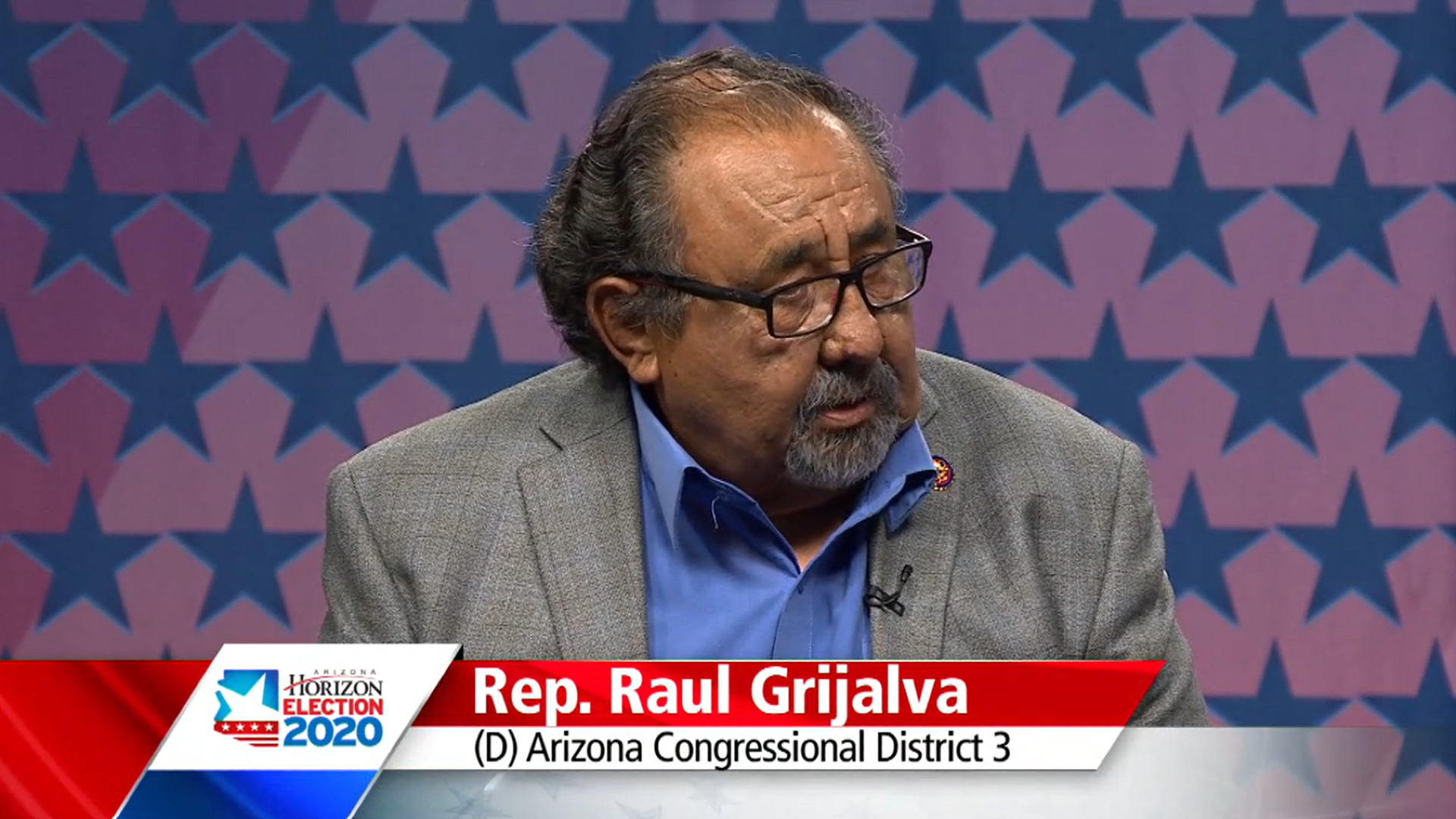Grijalva Revives Battle Against Manchin's Pipeline Bill

Lawmakers and climate justice activists are renewing their fight against legislation from Sen. Joe Manchin (D-WV) that would make it easier for energy companies to overcome community opposition to new fossil fuel projects.
After rallying opposition to the bill in September, Rep. Raul Grijalva (D-AZ) is now doing so again – this time to pressure House leaders not to attach Manchin’s bill to annual military spending legislation.
And Sen. Bernie Sanders (I-VT) tells TYT he will work to defeat Manchin’s bill when it’s introduced in his chamber, as well.
Grijalva, who chairs the Natural Resources Committee, is today re-sending a letter – signed by 76 other Democrats – that was first sent to Speaker Nancy Pelosi (D-CA) and Maj. Leader Steny Hoyer (D-MD) in the summer urging them not to attach Manchin’s bill to any so-called “must-pass” legislation. Manchin's bill never got that far, and it's not clear whether Pelosi and Hoyer would have agreed to Grijalva's request.
Grijalva today added a new cover letter that now specifically asks them not to attach Manchin's bill to the coming National Defense Authorization Act (NDAA). It was reported earlier this month that Manchin would try to get his permitting bill attached to the NDAA.
Manchin’s bill also faces opposition in the Senate. Asked about it last week, Sanders told TYT, “As you know, I am a very strong opponent of that piece of legislation. I think it’s an environmental disaster and I will do what I can to make sure it doesn’t become law.”
And more than 100 environmental justice groups and allies sent a letter to Pres. Joe Biden – following his trip to Egypt for the COP27 global-warming summit – urging the president to retract his support for Manchin’s bill.
If the bill becomes law, it will require the president to keep a rolling list of at least 25 high-priority fossil-fuel and renewable-energy projects that would have their permitting processes fast-tracked. The bill would severely limit community input on potentially harmful energy infrastructure projects by gutting the National Environmental Policy Act (NEPA), and guarantee the completion of the Mountain Valley Pipeline, a pet project of Manchin that would carry natural gas more than 300 miles from West Virginia to Virginia.
Fast-tracking permitting was promised to Manchin back in July in return for Manchin helping Sen. Maj. Leader Chuck Schumer (D-NY) pass the Inflation Reduction Act (IRA), a scaled-down version of Biden’s Build Back Better agenda. Opponents of the agreement – which did not include progressives – have referred to it as the “Dirty Deal.”
Manchin, whose bill was also endorsed by Pelosi, tried to push his permitting bill through in September, attached to a continuing resolution to avoid a government shutdown. As it became clear he could not garner enough support for his bill, Manchin withdrew it minutes before the Senate vote.
Last time, however, Republicans balked in part due to Manchin’s role helping to pass the IRA. This time, it’s not clear whether enough Republicans might sign on to overcome progressive opposition.
In a statement about resending his letter to House leadership, Grijalva said, **“**Given its unpopularity the first time around, I’m all but certain that another Dirty Deal would be dead on arrival, but I’m not taking any chances. Democrats are closing out this Congress with historic wins across the board, including climate action and environmental justice. Let’s not pollute that legacy with harmful legislative riders that nobody wants.”
In addition to stopping Manchin’s bill, environmental and climate justice advocates spent part of last week lobbying to get Grijalva’s and Rep. Donald McEachin’s (D-VA) Environmental Justice (EJ) for All Act passed in the weeks remaining during the lame-duck session before the new Congress is sworn in in January.
If passed, the EJ for All Act would strengthen NEPA protections for communities to fight potentially harmful energy projects and ensure a “just transition” for communities away from a greenhouse gas-dependent economy by using revenues from new fees on oil and gas companies.
TYT Washington Correspondent Candice Cole was previously a correspondent and senior White House producer for the Black News Channel and has worked at a number of local news outlets. You can find her on Twitter @CandiceColeNews.
